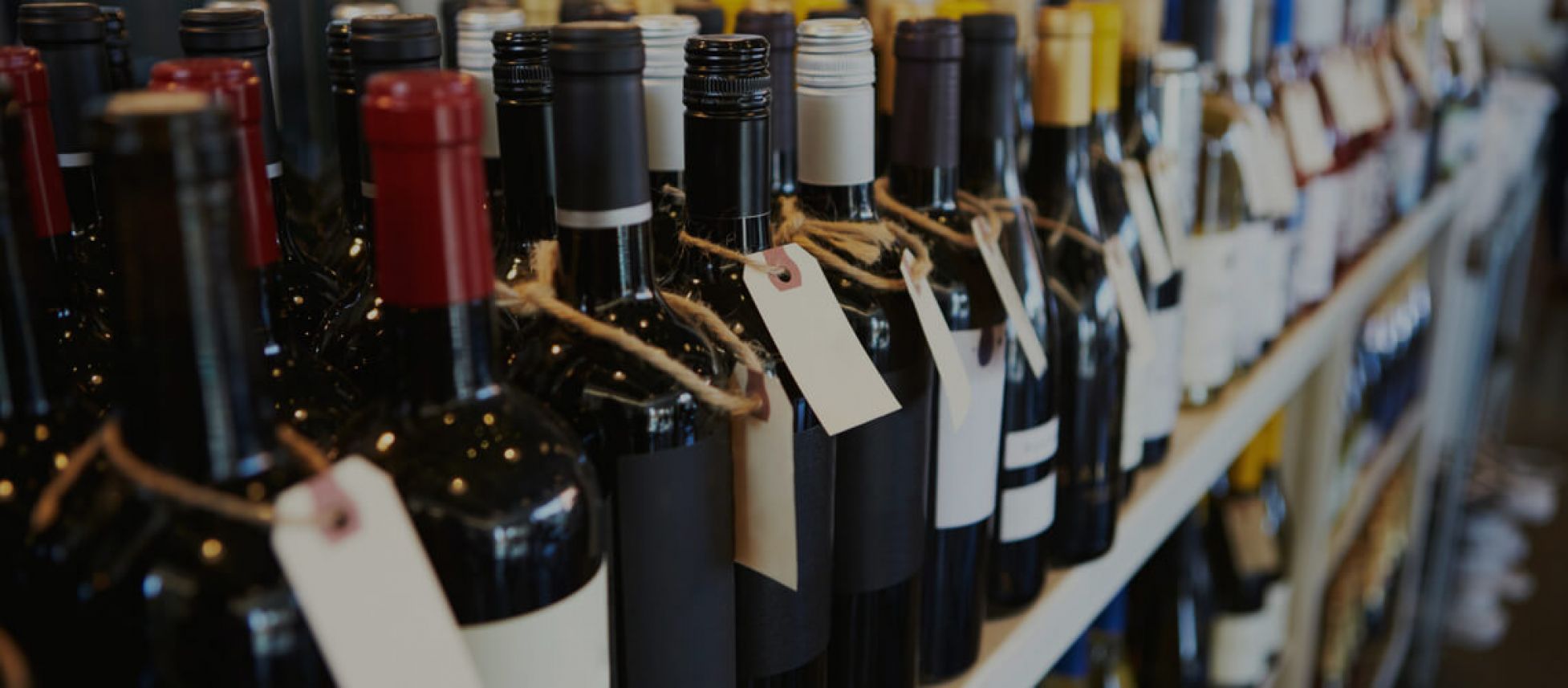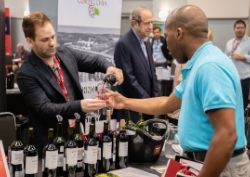Blog
Insights
The Private Label Wine Market in the USA

The demand of private label wine market in the USA has been increased by approximately 8-10% of all domestic wine sales and 17% of total wine sales for the big retail chains.
Over the past decade, the size of the private label wine market in the United States has nearly doubled in size. Private label wine sales now account for approximately 8-10% of all domestic wine sales. And that figure is even higher when you consider only the big retail chains, where private label wines now account for nearly 17% of total wine sales.
And it’s not just retail chains and supermarkets that have embraced private label wines – the list of players includes the big-box wholesale stores (such as Costco and Sam’s Club), restaurants, hotels, and even major cruise lines.

Business models for private label wine
Despite this phenomenal growth over the past 10 years, there is still some confusion about what a private label wine actually is. The conventional definition of a private label wine is that is a wine sourced from a wine manufacturer but managed by the retailer. Thus, the buyer does not run its own wineries – instead, it contracts out to different wineries for delivery of specific varietals of wine, which it then re-sells under its own label. All marketing and promotion of these wines are the responsibility of the buyer, not the winery.
There are several variants of this core business model, though. For example, an “exclusive brand” is wine sold exclusively to a particular retailer, but owned and managed by the wine producer. Thus, even though a wine retail chain like Total Wine & More (which has 135 stores in 18 states) might sell over 2,000 types of wine that can be found exclusively at its stores, Total Wine & More is not managing 2,000 different brands. But, at the same time, these wines are exclusive to Total Wine & More.
A version of this type of wine is known as the “store label,” which refers to a brand created for, and sold exclusively by one retailer. Costco, for example, created the “Kirkland Signature” store label. You won’t find a Kirkland wine in any other store except a Costco store. The same is true for Trader Joe’s and its Charles Shaw (“Two-Buck Chuck”) wines. Other store labels exist for Whole Foods Market (Animist, Criterion, Wine Farmer, Songbird Cellars) and for Kroger (Parker’s Estate, Acronym).
And, finally, another variant is known as the “custom label,” which is a brand unique to an on or off-premise chain. Thus, a restaurant like Shake Shack, eager to showcase a red wine to pair with its world-famous burgers, can create a custom label like “Shack Red” for its customers.
Often, the business models for these wines overlap, further blurring the line between private label and branded wines. For example, some people refer to Charles Shaw wines at Trader Joe’s as an “exclusive brand” because it is sold exclusively at Trader Joe’s. But, at the same time, it is also a store label, since Charles Shaw is a brand that appears only at Trader Joe’s. And, making things even more confusing, some people refer to Charles Shaw as a “control brand” because the brand is controlled by Trader Joe’s, but the wine is actually sourced from Bronco Wine.

Get Your Free Visitor Pass Today and Book Your Conference Ticket at the Lowest Price.
Register To Attend
Reasons for the development of the private label wine market
There are several important reasons why the private label wine market continues to flourish – and not just in the U.S., either. In the UK and Europe, the private label wine market is even more entrenched. In Britain, for example, private label wines account for nearly 30% of all domestic wine sales. In other parts of Europe, the market share is closer to 50%.
From the perspective of retailers and on-premise establishments, the key reason to embrace private label wines has to do with margins. Whereas traditional branded wines might deliver margins of 30-35% per bottle, the margins can be as high as 50-55% for private label wine bottles.
And, even though retailers are making more profits from higher margins, customers are also benefiting. That’s because private label wines are more affordable than similar types of branded wines, and are generally perceived to offer more value to the final consumer.
Private label wines can also act as a point of competitive differentiation vis-à-vis rivals. Consumers will be more likely to visit a supermarket – such as Whole Foods or Trader Joe’s or Kroger – where they know they can also pick up a great new bottle of wine. At the same time, a supermarket chain can better choose and curate domestic and imported wines that fit the buying profile of its consumers. If, for example, consumers are clamoring for wines from Australia, it is much easier to work with contract manufacturers to deliver precisely what consumers are looking for.

Private label wines can also become part of the overall branding of an on-premise establishment. Want to attract more hotel guests? Promote the fact that you have high-end private label wines that are not available anywhere else. That’s the strategy used by Hyatt Hotels, which partnered with Michael Mondavi’s Folio Fine Wine Partners on a line of private label wines. Want to offer a special perk to customers in order to lure them away from the competition by promoting special wines to be enjoyed on-location? That’s the strategy used by Miami-based Celebrity Cruises, which has partnered with Jackson Wine Estates on a private label wine.
And, finally, mention needs to be made of the changing distribution system for wine within the United States, and how that has impacted how retailers view private label wines. A decade ago – during the very infancy of the private label movement – each state had 20-25 wholesalers, each of which could offer a wide variety of wines from key wine region. A wholesaler, for example, might offer 20 different red wines just from Tuscany. But today, the situation has changed markedly. Most states only have 2-3 wholesalers, and that consolidation also means that there is less variety available. Each wholesaler works with large wine conglomerates, many of which only want to focus on the bestsellers from popular wine regions.
So, in response, retailers have embraced private labels as a way to showcase unique, proprietary blends. In fact, 90% of retail wine chains now do some type of private label wine program, simply to improve the level of diversity and choice for customers. At the same time, custom private label brands (such as a restaurant looking for a distinctive wine) are more easily able to piggyback off existing trends in the wine marketplace. If a certain wine is all the rage, then it is quite likely that private labels for that type of wine will begin showing up on wine menus at the restaurant.

New trends in the making for private label wines
The important point to keep in mind is that the private label wine market continues to expand. It’s not just large corporate wineries that are involved – it’s also small wineries with excess supply. And, in many cases, the true size of the private label wine market is not even known. Kroger, for example, won’t divulge the exact sales figures for its Parker’s Estate private label.
There are a number of factors working in favor of private label wines. Most importantly, retailers, on-premise establishments, consumers, and winemakers all seem to benefit at the same time. Retailers benefit from margins that can be twice that for regular branded wines. Restaurants benefit from higher margins as well as the ability to sell exclusive wines as part of their brand identity. Consumers benefit from lower prices and value, as well as greater diversity in choice. And winemakers benefit from knowing that they have a place to sell their excess wine. If a harvest of Pinot Noir is a particularly abundant one season, you can bet that the private label market for Pinot Noir will be active as well.

The same trends already observed in the UK and Europe are now being observed in the United States. On top of that, young millennial wine drinkers – who now account for nearly 42% of all domestic wine sales – have shown a willingness to experiment with new private label wines, especially when they are accompanied by compelling stories and brand identities. So if your idea of a private label wine is a $6 bottle of wine at the bottom of the shelf, think again. Private label wines, buoyed by consumer support, are now going premium. It’s now possible to find $24 private label bottles at Costco, showing that the private label trend still has plenty far to go.
If you're a bulk wine or bulk spirits supplier, contract bottler, or private label producer aiming to connect with serious trade buyers, IBWSS San Francisco is the event you can't afford to miss. Get a quotation or Book a exhibitor table.

